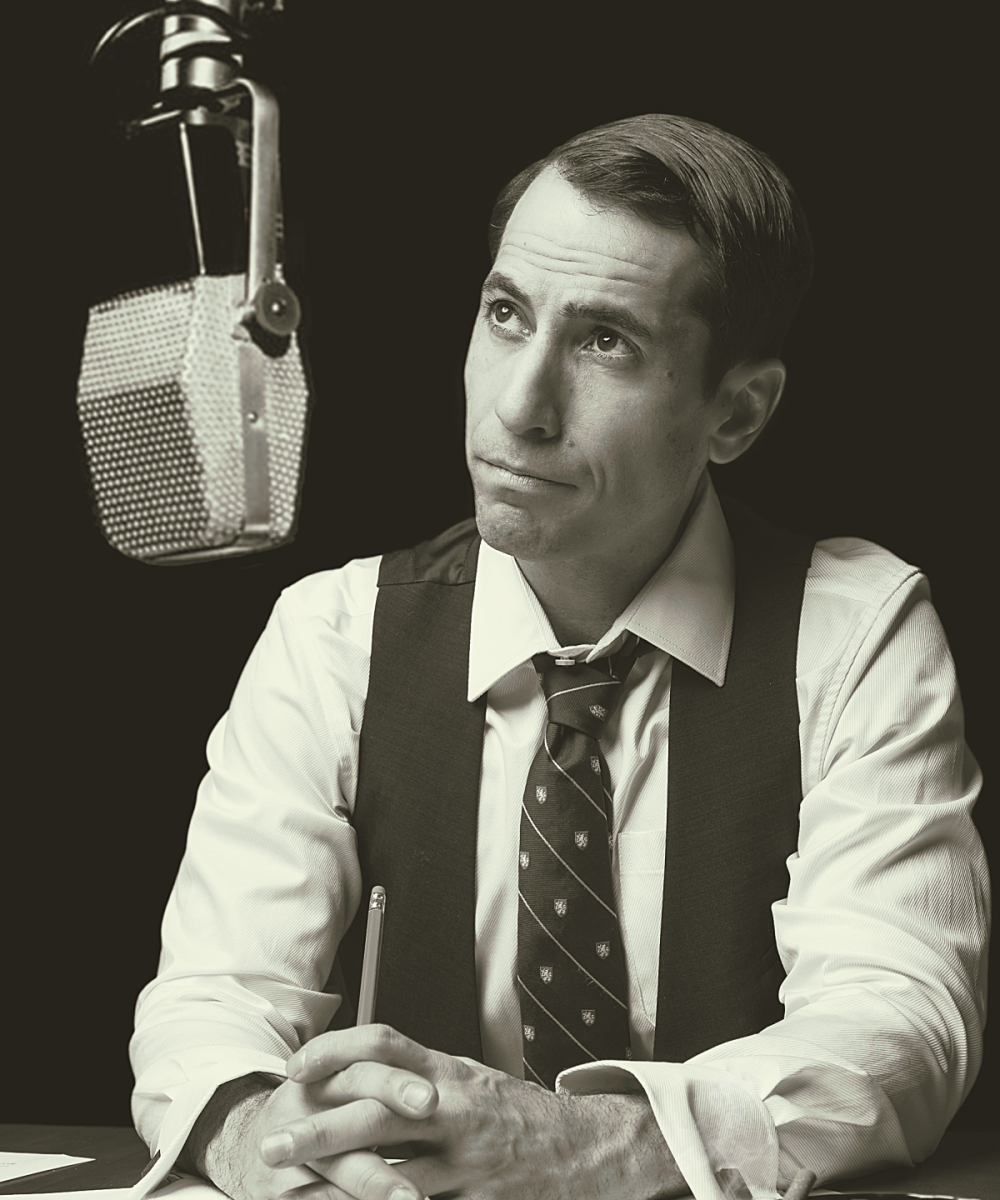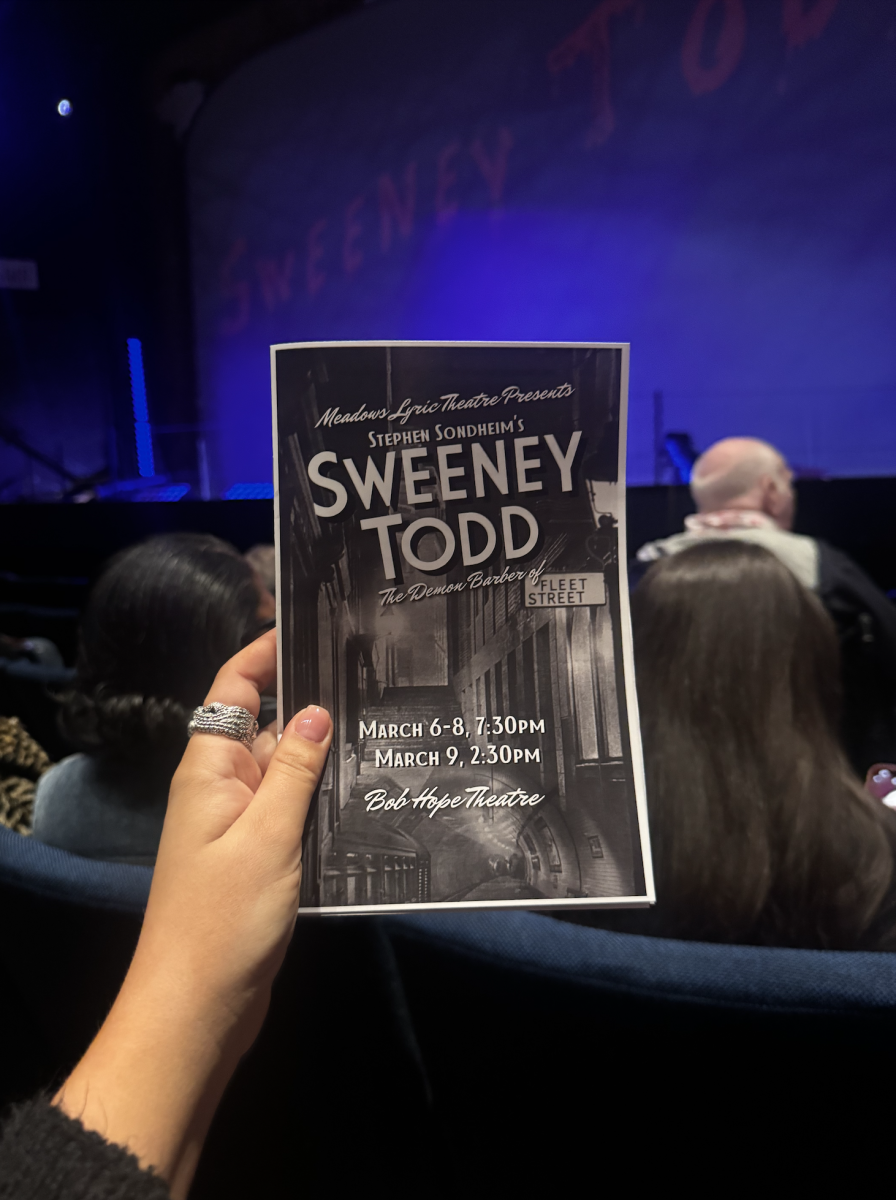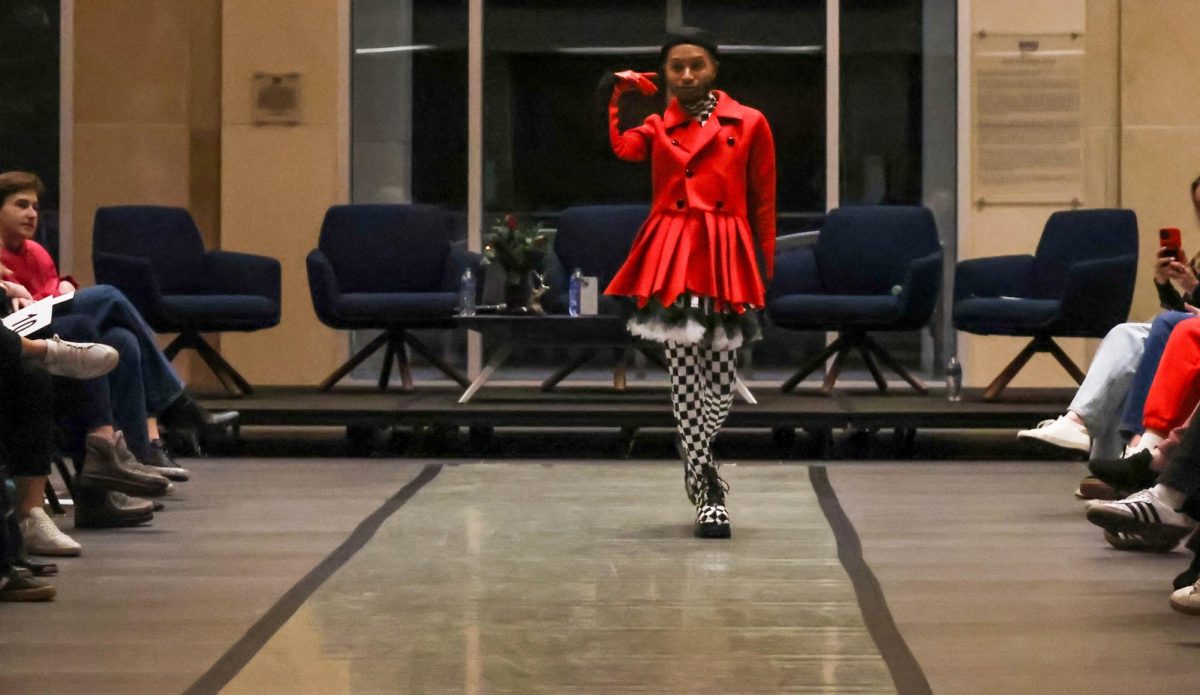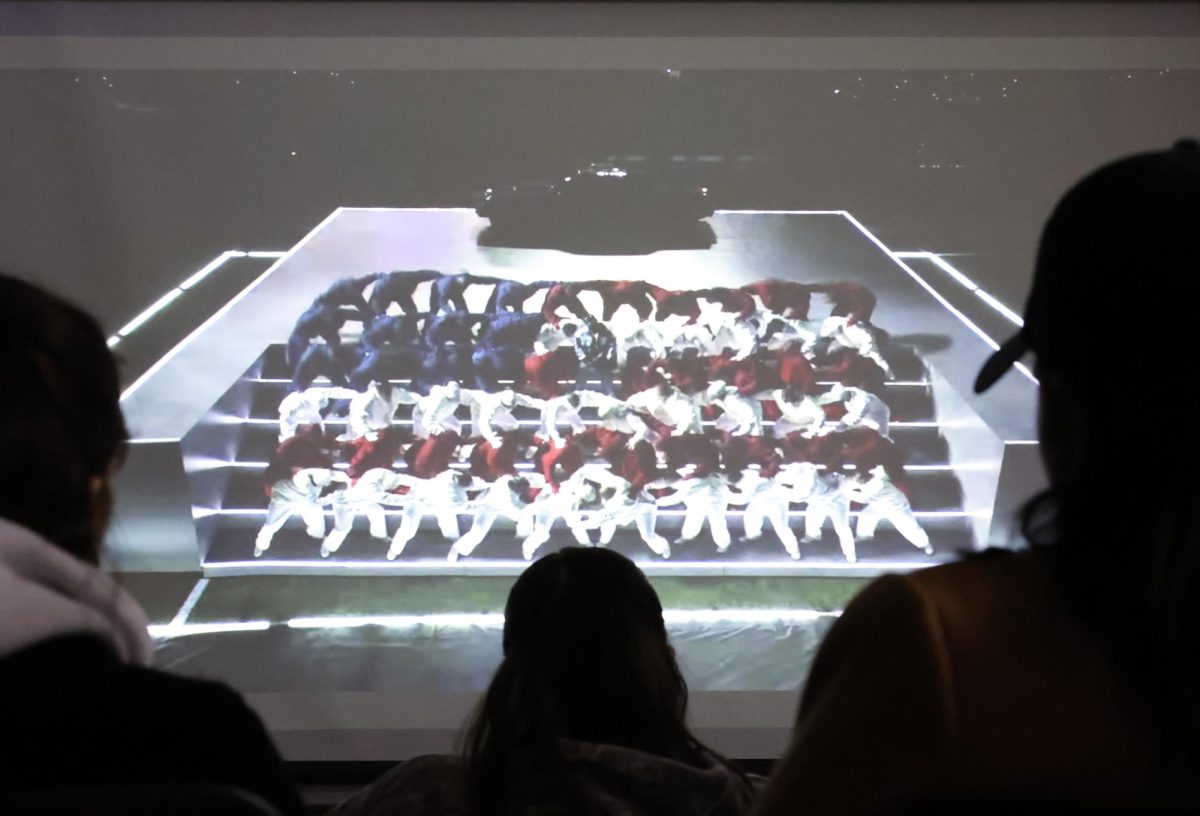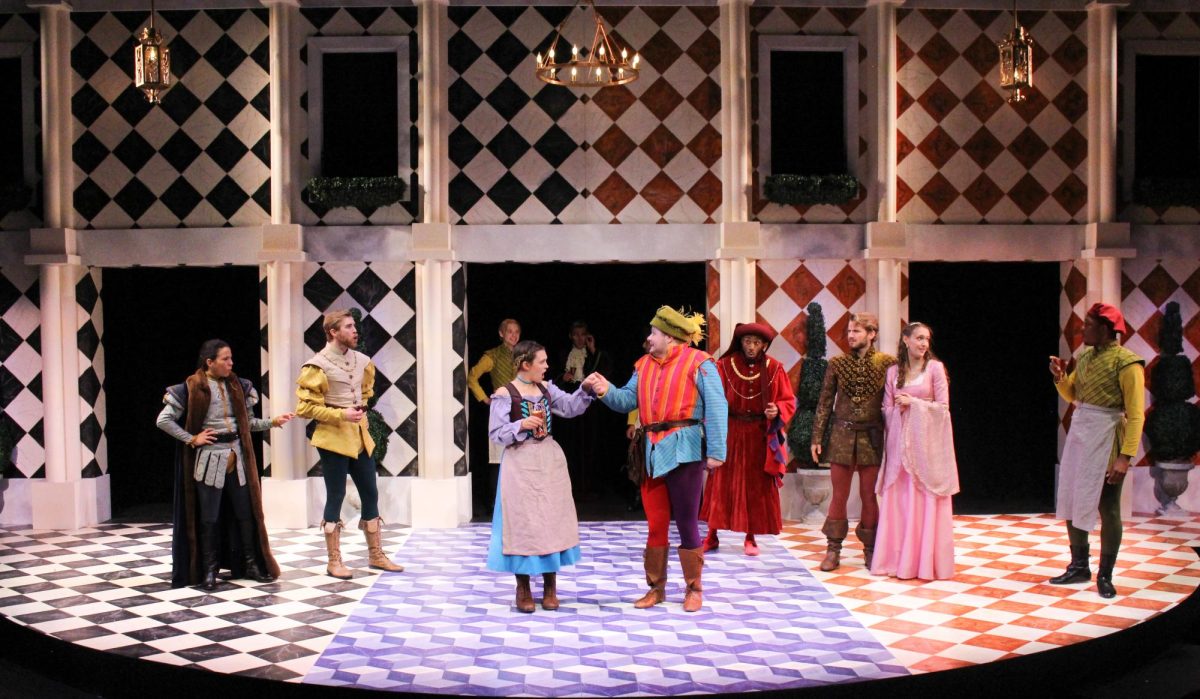On Sunday, April 14th, I attended the one-man play Murrow, written by Joseph Vitale, at the AT&T Performing Arts Center.
The play tells the story of the life of American broadcaster, Edward R. Murrow, and his impact and influence on the broadcast and journalism world. The show is an 80-minute one-act play consisting of two crucial parts defining Murrow’s career.
The first half of the play covers Murrow’s early career and his radio broadcasting coverage in London during World War II. The second half of the play covers Murrow’s television broadcast confrontation of Sen. Joseph S. McCarthy for allegedly being affiliated with the communist party.
Murrow lived in a time when multimedia platforms were just beginning to be created. From radio shows to television specials, it was Murrow’s voice that inspired a nation.
As the United States heads into a presidential election year, American citizens are more divided than ever, and the public’s trust in national media is at an all-time low with only 32% of Americans trusting the media.
The play parallels the use of media in the 1930s to the present day, and how truthful reporting is important now more than ever.
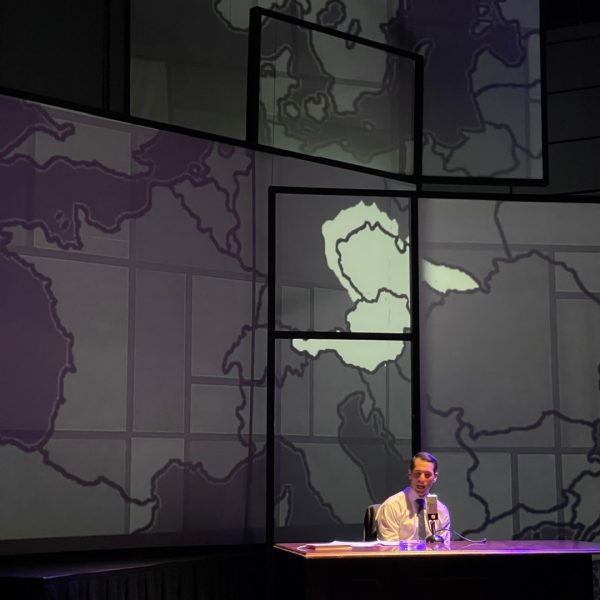
SMU Alum and Producer of Murrow, Bren Rapp, thought about Murrow in 2020 because she believed the message of the play is relevant in today’s social and political world.
“In 2020, there was one day where Donald Trump had a photo shoot with a Bible in front of a church and it was right after the Black Lives Matter Movement,” Rapp said. “I remember flipping through the channels that day, and it was like listening to two completely different views of the same event. I was like, ‘god this is crazy!’ I’m looking at a politician manipulating the media, and then I’m looking at the media manipulate people. It made me think, ‘What do I want to put out when theaters open up again?’ and Murrow’s voice came to mine.”
Rapp said that Murrow’s journalistic “integrity can again become a beacon, leading us to value factual information,” just as Murrow did.
I am an avid theater lover. I have seen multiple Broadway shows, consisting of both straight plays and musicals. I did theater throughout my four years of high school, as well as participated in a theater critic group where I would go to neighboring high schools and write reviews about the different shows I had seen. Let’s just say, I have seen my fair share of plays and musicals-yet I have never seen a one-man show.
Before the performance, I was skeptical about how the play would be performed. I had never seen a one-man show before and I didn’t like the idea of it. When I think of theater, I think of two or more actors working off each other to create a spectacular performance, not one person performing alone.
It made me wonder if the whole show would be a monologue or if there would be other dialogue from a prerecorded voice-over that would play throughout the show. But by the end of the show, I was impressed.
Before the show started, as the audience walked into the theater, voiceovers of Edward R. Murrow himself were playing. Looking onward toward the set, it was minimal. It had three white projection screen walls with window-like frames placed slightly above the walls. Placed on stage was a wooden desk, chair, and radio mic.
When the play started, Nicolas Greco, the actor playing Edward R. Murrow, entered through the aisle of the audience onto the stage, addressing the room with such command and authority that I thought it was Edward Murrow himself. To my prediction, the dialogue of the play consisted primarily of monologues, with occasional sidebars where Murrow would “go back in time” and portray himself in a conversation. Although the script appeared as a monologue, as an audience member, it didn’t feel that way.
It was Greco’s performance that sold the concept of a one-man play. Greco gave a performance that left the audience moved and wanting to know more. He truly became a storyteller and transformed into Edward R. Murrow, creating the story of Murrow’s life and addressing the audience as if he were telling his own life story.
Throughout the performance, Greco’s acting abilities stood out. Everything from his posture to the way he talked resembled Murrow. From an acting perspective, I honestly didn’t think Greco would do a good job performing as a one-man play, but I was truly impressed by Greco’s performance of Murrow.
As amazing as Greco did at portraying Murrow, the technical aspects truly made the show what it is. For instance, lighting played a big part in this show, as it tied different aspects of Murrow’s life together. When Murrow was addressing his wife the lights turned pink, when he was addressing the past the lights turned yellow, and when he was addressing someone in present time the lights turned white.
One of my favorite parts of the show, from a technical aspect, was the projections. The projections, done by Eric Scot Voecks, reflected what Murrow was talking about. When Murrow discussed his time in London during World War II, the projections showed destroyed buildings and fighter planes. The projections added a visual aspect to the play, making it more engaging to watch.
By the end of the play, it was easy to see what Vitale was trying to convey with the play’s message.
“If you’re gonna have a democracy that works, you need a free press,” Vitale said. “You also need an absolutely responsible, committed, serious, free press because they have a powerful pulpit and they have loyalty to the truth, even if the truth takes them where they don’t want to be as journalists. Their loyalty to facts comes first, not their opinion. That’s the message I’d like to see the play now convey to people.”
After the show, a panel featuring the DC’s Katie Bergelin, The Dallas Morning News’ Amy Hollyfield, and playwright Joseph Vitale, was held for the audience to ask “today’s journalists” questions regarding transparency in the media as well as how modern media has changed reporting.
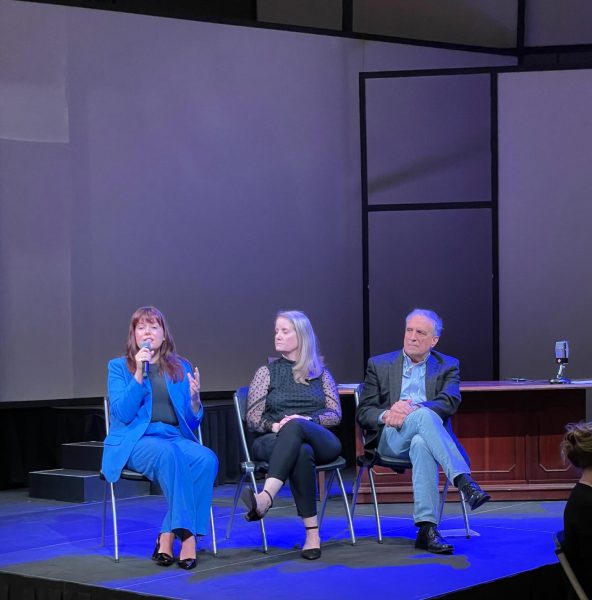
(Chloe Casdorph)
“There is a real crisis in journalism because local journalism isn’t everywhere,” Hollyfield said in response to an audience member asking if there is a crisis in journalism. “Cable news and social media have changed how people take in news, what they can trust, and what they understand.”
The panel further discussed what news coverage should and shouldn’t be in this day-an-age, and how it related to the play’s message of Murrow’s building trust with the public and doing honest reporting.
“One thing I’ve learned about Murrow through my research is that he was absolutely assiduous about checking, and rechecking, and rechecking to make sure everything was accurate,” Vitalie said. “I think he realized he has the power to really affect people’s opinions, and he took that very seriously.”
The play parallels many current world events, the biggest one being the public’s trust in the media. News media, such as CNN or Fox News, tend to lean certain ways on the political scale, leaving the public unsure about what is actually true. Although not a solution to this problem, Hollyfield gives a suggestion.
“I think it’s on everyone to be careful what you’re reading and who you’re reading,” Hollyfield said. “Read the same story in three or four places and see the difference. If it’s an honest and truthful thing, you’ll figure that out.”
Overall, this play is definitely one to see. The play parallels what’s going on in the world currently. The topics that Murrow reported on in the 1930s are happening again. The play opens our eyes to the reality that journalism is in crisis and the world needs more reports like Murrow.



